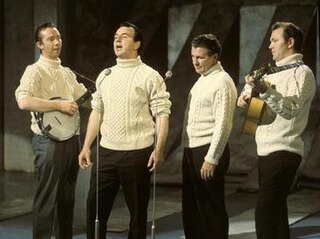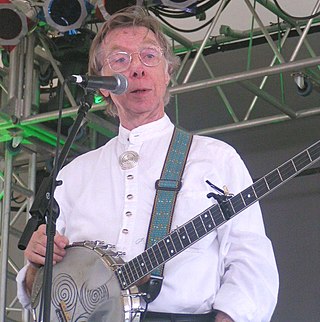Related Research Articles

In Celtic cultures, a bard is a professional story teller, verse-maker, music composer, oral historian and genealogist, employed by a patron to commemorate one or more of the patron's ancestors and to praise the patron's own activities.

"John Barleycorn" is an English and Scottish folk song listed as number 164 in the Roud Folk Song Index. John Barleycorn, the song's protagonist, is a personification of barley and of the alcoholic beverages made from it: beer and whisky. In the song, he suffers indignities, attacks, and death that correspond to the various stages of barley cultivation, such as reaping and malting.

Drinking culture is the set of traditions and social behaviors that surround the consumption of alcoholic beverages as a recreational drug and social lubricant. Although alcoholic beverages and social attitudes toward drinking vary around the world, nearly every civilization has independently discovered the processes of brewing beer, fermenting wine and distilling spirits.
"99 Bottles of Beer" or "100 Bottles of Pop on the Wall" is a song dating to the mid-20th century. It is a traditional reverse counting song in both the United States and Canada. It is popular to sing on road trips, as it has a very repetitive format which is easy to memorize and can take a long time when families sing. In particular, the song is often sung by children on long school bus trips, such as class field trips, or on Scout or Girl Guide outings.

The Clancy Brothers were an influential Irish folk music group that developed initially as a part of the American folk music revival. Most popular during the 1960s, they were famed for their Aran jumper sweaters and are widely credited with popularising Irish traditional music in the United States and revitalising it in Ireland, contributing to an Irish folk boom with groups like the Dubliners and the Wolfe Tones.
"The Skye Boat Song" is a late 19th-century Scottish song adaption of a Gaelic song composed c.1782 by William Ross (poet), entitled "Cuachag Nan Craobh". In the original song, the composer complains to a cuckoo that his love, Lady Marion Ross, was rejecting him. The new 19th century lyrics instead evoked the journey of Prince Charles Edward Stuart from Benbecula to the Isle of Skye as he evaded capture by government troops after his defeat at the Battle of Culloden in 1746.

A pub session is performing music in the setting of a local pub, in which the music-making is intermingled with the consumption of ale, stout, and beer and conversation. Performers sing and play traditional songs and tunes from the Irish, English, Scottish and Manx traditions, using instruments such as the fiddle, accordion, concertina, flute, tin whistle, uilleann pipes, tenor banjo, guitar, and bodhrán. Some sessions have dancing too

Thomas Makem was an Irish folk musician, artist, poet and storyteller. He was best known as a member of the Clancy Brothers and Tommy Makem. He played the long-necked 5-string banjo, tin whistle, low whistle, guitar, bodhrán and bagpipes, and sang in a distinctive baritone. He was sometimes known as "The Bard of Armagh" and "The Godfather of Irish Music".

"Seven Drunken Nights" is a humorous Irish folk song most famously performed by The Dubliners. It is a variation of the Scottish folk song "Our Goodman". It tells the story of a gullible drunkard returning night after night to see new evidence of his wife's lover, only to be taken in by increasingly implausible explanations.
The Barley Mow is a cumulative song celebrated in the traditions of folk music of England, Ireland, and Scotland. William Chappell transcribed the lyrics in his two-volume work The Ballad Literature and Popular Music of the Olden Time (1855).
"Drunken Sailor", also known as "What Shall We Do with a/the Drunken Sailor?" or "Up She Rises", is a traditional sea shanty, listed as No. 322 in the Roud Folk Song Index. It was sung onboard sailing ships at least as early as the 1830s, and it shares its tune with the traditional Irish folk song "Óró sé do bheatha abhaile".
"Streets of Laredo", also known as "The Dying Cowboy", is a famous American cowboy ballad in which a dying ranger tells his story to another cowboy. Members of the Western Writers of America chose it as one of the Top 100 Western songs of all time.

The gill or teacup is a unit of measurement for volume equal to a quarter of a pint. It is no longer in common use, except in regard to the volume of alcoholic spirits measures.
"Mrs. McGrath" is an Irish folk song set during the Peninsular War of the early 19th century. The song tells the story of a woman whose son enters the British Army and returns seven years later having lost his legs to a cannonball while fighting against Napoleon presumably at the Battle of Fuentes de Oñoro. The general theme of the song is one of opposition to war. Along with "Johnny I Hardly Knew Ye", it is one of the most graphic of all Irish folk songs that deal with sickness and injuries caused by warfare. Irish folk song collector Colm Ó Lochlainn described "Mrs. Grath" as "known to every true born citizen of Dublin". It was very popular among the Irish Volunteers in the years leading up to the 1916 Rising and has been recorded by many singers and folk groups.
"South Australia" is a sea shanty, also known under such titles as "Rolling King" and "Bound for South Australia". As an original worksong it was sung in a variety of trades, including being used by the wool and later the wheat traders who worked the clipper ships between Australian ports and London. In adapted form, it is now a very popular song among folk music performers that is recorded by many artists and is present in many of today's song books.

"A Pub with No Beer" is the title of a humorous country song made famous by country singers Slim Dusty and Bobbejaan Schoepen.
Makem and Spain was an Irish-American folk music band. The band was founded as "The Makem Brothers" in February 1989 by Rory, Shane, and Conor Makem, the three sons of "The Godfather of Irish Music" Tommy Makem, and grandsons of Irish source singer Sarah Makem.
"Carrickfergus" is an Irish folk song, named after the town of Carrickfergus in County Antrim, Northern Ireland. The Clancy Brothers' 1964 album titled "The First Hurrah!" includes this title. A somewhat differing version was released under the name "The Kerry Boatman", by Dominic Behan on an LP called The Irish Rover, in 1965.
"Willow's Song" is a ballad by American composer Paul Giovanni for the 1973 film The Wicker Man

Drunken Songs is the thirtieth solo album by Julian Cope, released in February 2017.
References
- 1 2 Blocker, Jack (2003). Alcohol and Temperance in Modern History: An International Encyclopedia, Volume 1. ABC-CLIO. p. 209. ISBN 1576078337.
- ↑ "A Beer Hug, Anyone?". Business Today. New Delhi.
- 1 2 3 4 5 Sing Out, Volume 10. Peoples Artists. 1960. pp. 10–37.
- ↑ Twentieth Century: An Australian Quarterly Review, Volumes 19-20. 1964. p. 106.
- ↑ Wannan, Bill (1970). Folklore of the Australian Pub. Macmillan. pp. 85–86. ISBN 0333139062.
- 1 2 "New Records bid to make Hitsville". Billboard. Nielsen Business Media. 1961-08-14. p. 26.
- ↑ InXile Entertainment (2004). The Bard's Tale (PS2). Vivendi Universal Games. Scene: The Drunken Rat.Level/area: Houlton.
- ↑ Mervis, Scott (2012-03-15). "Irish bands gear up for big day". Pittsburgh Post-Gazette. Retrieved 2015-01-24.
- ↑ "Charlie Mopps closes adding to the death toll". What Now Atlanta. 2010-05-25. Archived from the original on 2015-01-28. Retrieved 2015-01-24.